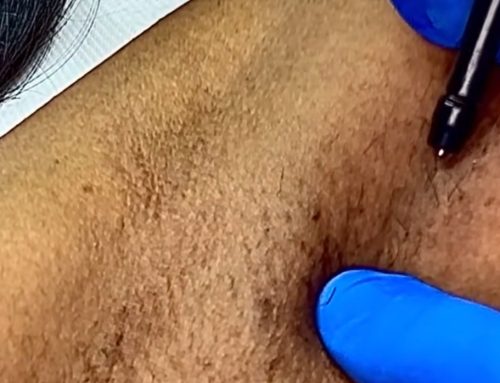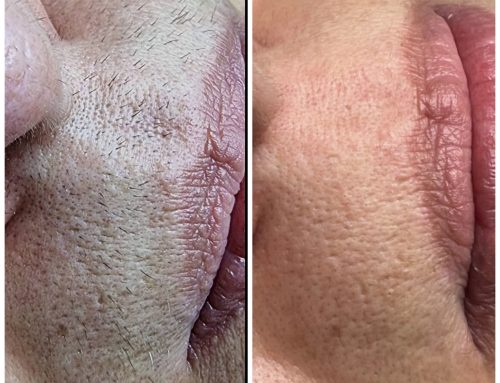Skincare can be wildly confusing, especially when you want to create real, noticeable change. One thing that’s certain, however, is that when you have the right ingredients in the right concentrations, transformative things canhappen.
That’s why, since our inception, we’ve been passionate about creating some of the best cosmeceuticals in the game (not to mention the most affordable). But what does cosmeceutical skincare mean, and how does it differ from regular skin formulations?
Below, we break down just what a cosmeceutical is, why you should be using them, and top ingredients to look out for.
So, What Is Cosmeceutical Skincare?
The word cosmeceutical is used to describe a topical formula that sits between ‘pharmaceutical’ and ‘cosmetic’ skincare. It was coined by Dr Albert Kligman in 1984, to describe this hybrid category as “a topical preparation that is sold as a cosmetic but has performance characteristics that suggest pharmaceutical action”.
Cosmeceuticals are formulated with ingredients at a therapeutic concentration with the intention of creating tangible change within the skin. These include vitamins C, A and B as well as peptides, exfoliating acids and other plant-derived extracts. These ingredients are referred to as ‘actives’ as they have the ability to improve on a range of conditions, such as hyperpigmentation, pronounced signs of ageing, acne, scarring, redness and textural irregularities.
Another defining trait is that most cosmeceutical formulas have been through clinical studies or are backed by medical experts (such as dermatologists, cosmetic scientists and skincare formulators).
What Is The Difference Between Cosmetic And Cosmeceuticals?
The key difference is that cosmeceuticals are formulated with the sole purpose of improving skin health on a holistic level. Standard cosmetics might just provide temporary relief, superficial hydration, or a luxurious experience; perhaps they contain pharmaceutical ingredients but at a lower concentration. There’s nothing necessarily wrong with either, but if you are looking to seriously improve your complexion, it’s essential to seek out a product that’s going to have a quantifiable effect.
It’s also worth noting that ‘cosmeceutical’ isn’t a regulated term, so there’s no concrete definition to separate it from a regular cosmetic formula. But for us, the word represents products that contain hardworking ingredients at proven concentrations – because at the end of the day, we’re all about results!
Can Anyone Use Cosmeceuticals?
In a word, yes! Cosmeceuticals are great for anyone who wants to target fine lines, wrinkles, sun damage, uneven texture, extreme dryness or acne (and sometimes, a combination of these issues).
They can be used exclusively or combined with other luxurious/ fun formulas – because sometimes, the ritual of skincare is as important as the results.
But cosmeceuticals are powerful, so it’s best to chat to an expert, or thoroughly research ingredients and formulas before integrating them into your routine. This is precisely why i stock Skinstitut and O Cosmedics Mineral Pro and offer consultation. Please book a skin consultation or facial online here
What Are The Common Cosmeceutical Active Ingredients?
Looking to dip your toes into the cosmeceutical universe? These are a few of our favourite ingredients:
Retinol
This vitamin A derivative is an all-round superstar for a bunch of skin concerns, from acne and congestion to pigmentation and signs of ageing. It works to regulate cellular turnover, ensuring fresh, healthy cells can make their way to the surface.
Try: Expert Reveal Retinol Facial Oil
Niacinamide
Otherwise known as vitamin B3, niacinamide regulates oil production and soothes the skin, working to promote a complexion that’s balanced, clear and luminous.
Try: Expert Restore Niacinamide Replenishing Cream
Peptides
Peptides strengthen the skin, working to correct lines and wrinkles. They’re perfect for anyone who wants to firm, plump and restore signs of youth.
Try: Expert reset Skin-Firming Peptide Serum
Vitamin C
This potent antioxidant protects against environmental damage. It also stimulates collagen production for firmer, smoother skin.
Try: Vitamin C 100%
Glycolic Acid
Glycolic Acid is an alpha-hydroxy acid that dissolves the glue that holds surface skin cells together, allowing the skin to be exfoliated and replaced with bright, healthy cells. With ongoing use, glycolic acid corrects discolouration, uneven tone and texture.
Try: Glycolic Scrub 14%




